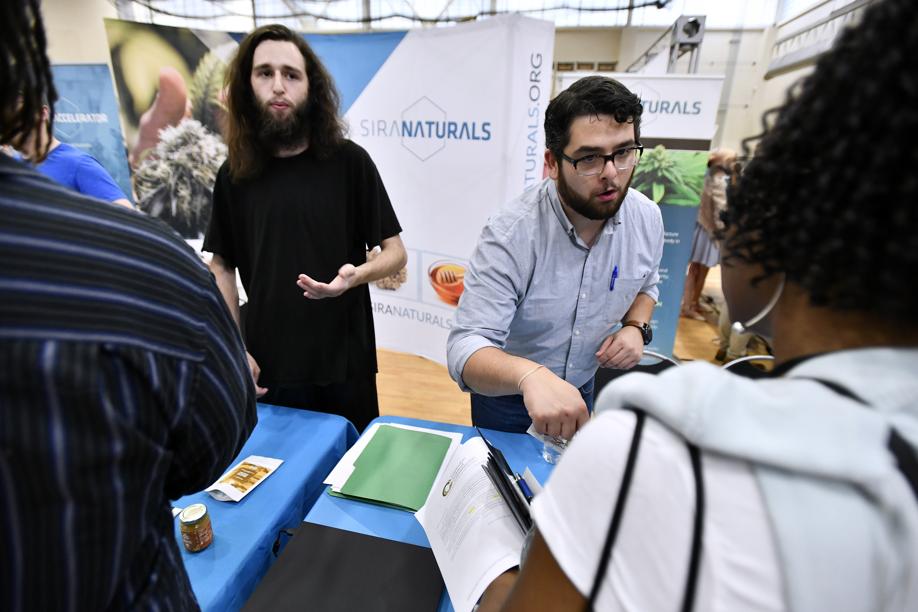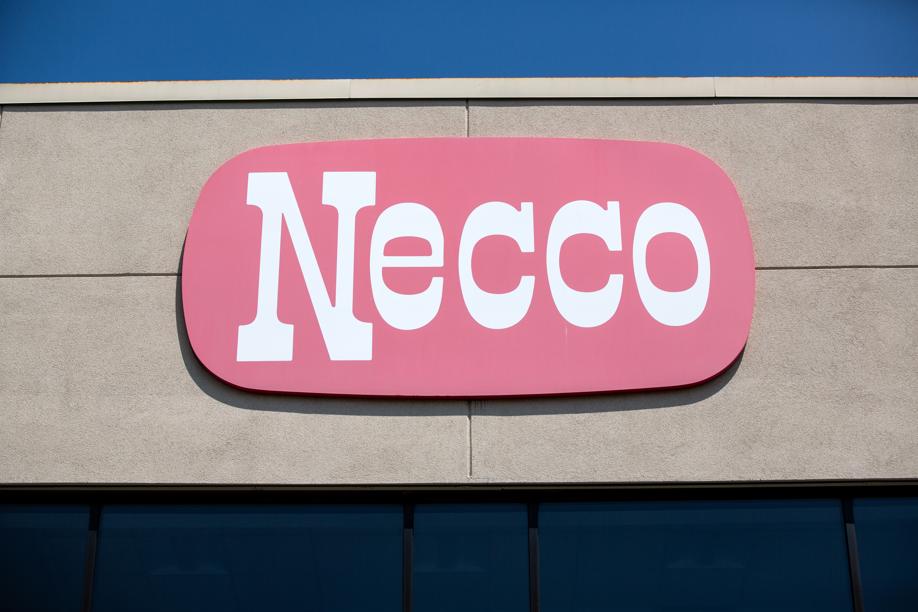MARIJUANA
Industry will eventually create nearly 20,000 jobs
The Massachusetts recreational marijuana industry will eventually create the equivalent of nearly 20,000 full-time jobs, according to new projections released this week by cannabis technology company Weedmaps. Using revenue and employment data from Colorado as benchmarks, Weedmaps predicted that a mature Massachusetts marijuana sector would employ the equivalent of 19,300 full-time workers, both directly and indirectly. Licensed marijuana companies would account for the majority of the positions, Weedmaps said, with more than 4,700 working at retail pot shops and another 8,700-plus divided among administrative, manufacturing, and agricultural jobs. Weedmaps predicts an additional 5,800 or so jobs will either be created by companies that service the licensed pot industry — from law firms to construction contractors — or “induced’’ by the general economic activity surrounding the sector. — DAN ADAMS
FOOD
Grubhub to buy LevelUp
The online food-ordering company Grubhub announced Wednesday that it has agreed to buy the Boston startup LevelUp, which makes technology to support restaurant payment and loyalty programs. Already a dominant player in the delivery business, Grubhub hopes the deal will allow it to deepen its relationships with the restaurants it serves. The acquisition would give the company a significant foothold in the technology that restaurants use to process sales and manage loyalty programs. “Together, we will provide restaurants with everything they need to grow profitably as more and more diners opt for the convenience, transparency and control of ordering online,’’ LevelUp chief executive Seth Priebatsch said in a statement. LevelUp had raised more than $100 million from venture capitalists. Originally called SCVNGR, it began as a program to make a game out of dining, encouraging zany patron behavior as part of scavenger hunts while visiting participating establishments. The company eventually settled on a less-flashy business model, however, offering programs that allow users to pay for food and earn loyalty rewards using mobile devices. The company had in recent years been working to integrate its payment options into online and mobile ordering programs, often working behind the scenes on “white label’’ products that bore its customers’ branding. Chicago-based Grubhub has been growing into a dominant player in the online ordering and delivery market. Last year, it bought — then closed — Foodler, another Boston company and one of several major competitors it has gobbled up. Grubhub has scooped up several other companies as it seeks to build out a more complex suite of services to offer restaurants, as other firms in the field do. One of its competitors, for instance, is with Caviar, which is owned by the payment processing technology company Square. — ANDY ROSEN
LABOR
Legislature finally moving to address noncompete agreements
Leaders of the local venture capital community lobbied state lawmakers for years to restrict the contracts employers use to keep workers from jumping to competitors. Now, with the formal legislative session nearing an end for the year, they’re about to get their wish. And they’re not happy. The Senate on Wednesday night approved a broader bill that includes new limits on so-called noncompete agreements, with language deliberately written to get the bill through the House of Representatives. Legislators had tried to strike a deal two years ago, but that effort failed after the local venture capital industry objected. The version moving now would restrict the length of noncompetes to one year, and it includes a workaround that could allow companies to avoid significant payments to departed workers during that period. Some members of the startup community say these conditions would do little to curb a practice they say stifles innovation by preventing workers from easily switching jobs or starting their own ventures. — JON CHESTO
MANUFACTURING
Necco plant abruptly closes, putting hundreds out of work
The Necco plant in Revere was abruptly shut down Tuesday after the entity that bought the company at bankruptcy auction in May announced it had sold Necco to another candy manufacturer. Round Hill Investments LLC, which purchased Necco for $17.3 million at emergency auction in May, confirmed the closure in a statement late Tuesday. “Round Hill Investments was very excited to acquire Necco’s historic brands and to be part of their national resurgence,’’ the company said. “After careful engagement and consideration, however, the firm decided to sell the brands to another national confection manufacturer and today announced the closure of the operations in Revere, Massachusetts.’’ The company, which is operating Necco under the affiliate name Sweetheart Candy Co. LLC, did not identify Necco’s new owner or say whether candy production would resume. Necco is the country’s oldest continuously operating candy company. Round Hill is an entity owned by billionaire C. Dean Metropoulos and his sons Evan and Daren. Round Hill bought Hostess Brands, maker of Twinkies, out of bankruptcy in 2013. The move comes several weeks after Necco’s bankruptcy trustee, Harry B. Murphy, filed suit against Round Hill for trying to back out of a final $1 million purchase payment. The announcement was a shock to hundreds of the company’s workers, who expected the New England Confectionery Co. to remain open through at least November, when its lease at the Revere plant is scheduled to expire. That lease was originally set to end in August but was extended as part of the bankruptcy proceedings. — KATHELEEN CONTI
PHARMACEUTICALS
Alzheimer’s drug significantly slows decline in large clinical trial
For the first time, a large clinical trial of an Alzheimer’s drug significantly slowed patients’ cognitive decline, offering promising and unexpected hope from researchers and drug makers at a conference Wednesday. The drug, from Cambridge-based Biogen and Eisai, a Japanese company, performed markedly better than a placebo at delaying the memory-destroying effects of Alzheimer’s over an 18-month period. The data, presented at the Alzheimer’s Association International Conference, came as a positive surprise to neurologists, who have spent years watching once-promising therapies fail in clinical trials. The therapy slowed mental decline by 30 percent in patients who got the highest dose in the study, and it removed much of the sticky plaque gumming up their brains, the drug’s makers said Wednesday. If the results are borne out, the drug may be the first to successfully attack both the brain changes and the symptoms of Alzheimer’s. But there are caveats. The Phase 2 trial, which employed multiple statistical measures, failed its primary goal. Four doses of the drug, called BAN2401, didn’t outperform a placebo, and the high dose was tested on just 161 patients. Furthermore, the metric Biogen and Eisai used to measure mental acuity is a homegrown composite that has never been used to win Food and Drug Administration approval. Whether the drug will move to a Phase 3 trial remains an open question. Despite persistent questions from Wall Street, Biogen and Eisai have not said whether they will take up a larger study to tease out BAN2401’s benefits or go straight to the FDA with the Phase 2 results. Earlier this month, Dr. Lynn Kramer, chief medical officer of Eisai’s neurology division, said the company considered the Phase 2 trial to be “late stage’’ and that it would discuss the possibility of using it to win approval when it meets with regulators later this year. — DAMIAN GARDE, STAT





